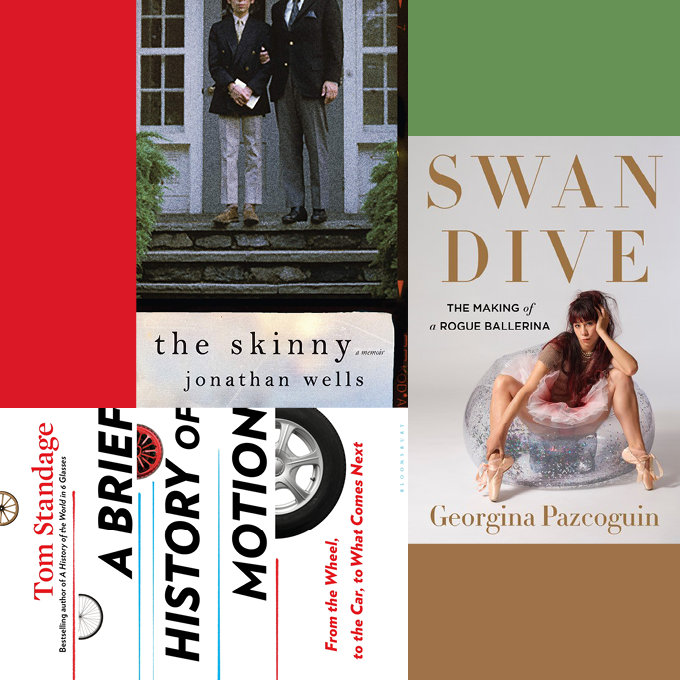Memoirs of growing up fat are far more common than accounts of growing up very thin, but that is not the only reason The Skinny stands out. Jonathan Wells, in telling about the challenges he faced growing up small (at age 14, he weighed only 67 pounds) and coping with a disbelieving dad, cruel teachers, and an unceasing demand to be more masculine, has produced a poetic remembrance of pain and forgiveness that rivals Tobias Wolff’s This Boy’s Life in its power to enthrall.
As New York City Ballet’s first female Asian-American soloist, Georgina Pazcoguin has much to be proud of. But the journey she has taken to get this far has not been an easy one—she suffered sexual taunts, weight issues (she had surgery to remove fat from her thighs), and above all racism in a profession that too narrowly defines who should dance the most classical roles. The idea of the ballet world as a brutal and misogynist hell is not new, but Pazcoguin has a higher ambition here in her hope that her book will help make the world she loves a more inclusive and welcoming one.
If you thought the invention of the wheel (once believed to have happened in Mesopotamia—the latest research has the Carparthian region in Europe as its birthplace, circa 3,500 B.C.) immediately changed the world, think again. In his wonderfully detailed history of transportation, Tom Standage points out how cumbersome the first wheeled vehicles were and how time-consuming it was to produce spoked wheels.
Standage deftly zips through more than 5,000 years of getting from one place to another, with particular emphasis on the automobile and all the ways it has shaped our lives. He insists we are headed in a new direction, especially in cities, where the smartphone and what he calls “the Internet of motion” will create a far more diverse set of transit options. Pop-up bus lanes, anyone?

